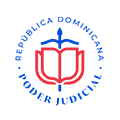
The Supreme Court of Justice, as defined in Article 152 of the Dominican Constitution shall be composed of seventeen (17) Judges, appointed by the National Council of the Magistracy, including one without jurisdictional powers by virtue of his election as a member of the Council of the Judicial Power, according to Article 5 of Law No. 28-11, who shall meet the conditions and requirements set forth in the Constitution of the Republic.
They are appointed by the National Council of the Judiciary and shall be subject to evaluation of their performance at the end of seven years from the date of their election by the Council; they may be elected for a new term. In the cases in which the National Council of the Magistracy decides to remove a judge from office, it shall base its decision on the reasons contained in the law governing the matter.
The Supreme Court of Justice has six (6) jurisdictional bodies, which are:
It is made up of all the judges and is the highest ranking body. Decisions are made by majority vote and in the event of a tie, the chairman's vote shall be decisive.
It is competent to hear and rule on cassation appeals filed for the first time in civil and commercial matters.
It is competent to hear and rule on cassation appeals filed for the first time in criminal matters. Likewise, it is competent to hear and rule on appeals in criminal matters, attributed to the Supreme Court of Justice, provided they are not those heard by the latter as a privileged jurisdiction.
It is competent to hear and rule on cassation appeals filed for the first time in land, labor, contentious-administrative and contentious-tax matters.
It is composed of the three chambers of the Supreme Court of Justice, and is the competent body to hear the second cassation appeal, on the occasion of a remittal made by any of the chambers, when it relates to the same point.
Among the powers conferred on the president, especially those related to the powers of attorney of the jurisdictional files, the following may be highlighted: to issue summons, to send the files to the corresponding chamber, depending on the matter, and to set a hearing in the different matters when the matter is within the jurisdiction of the Plenary.











